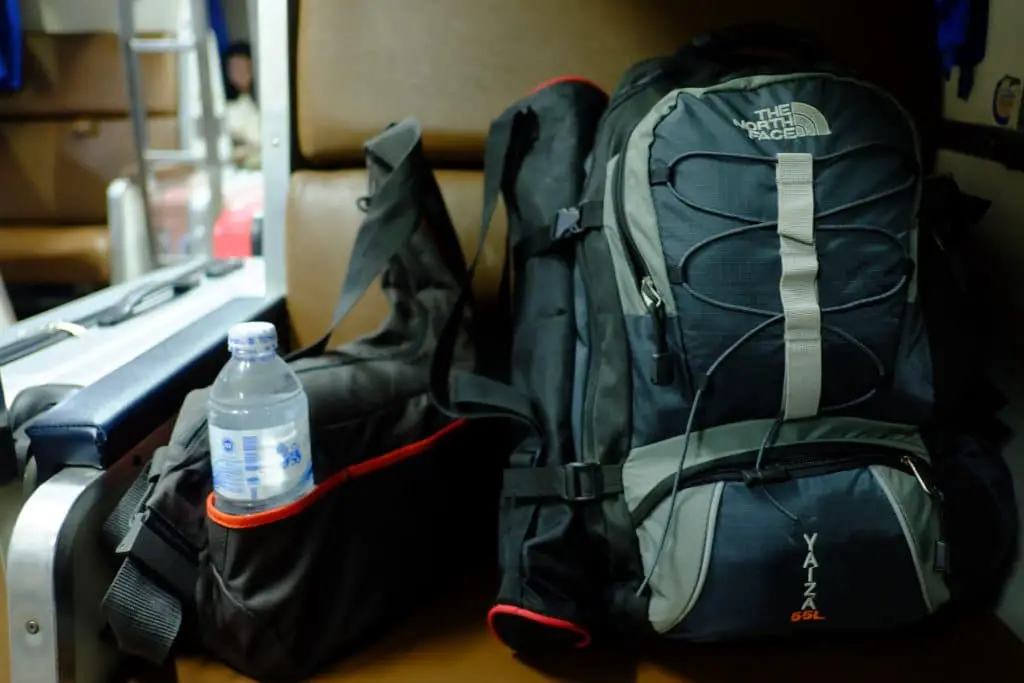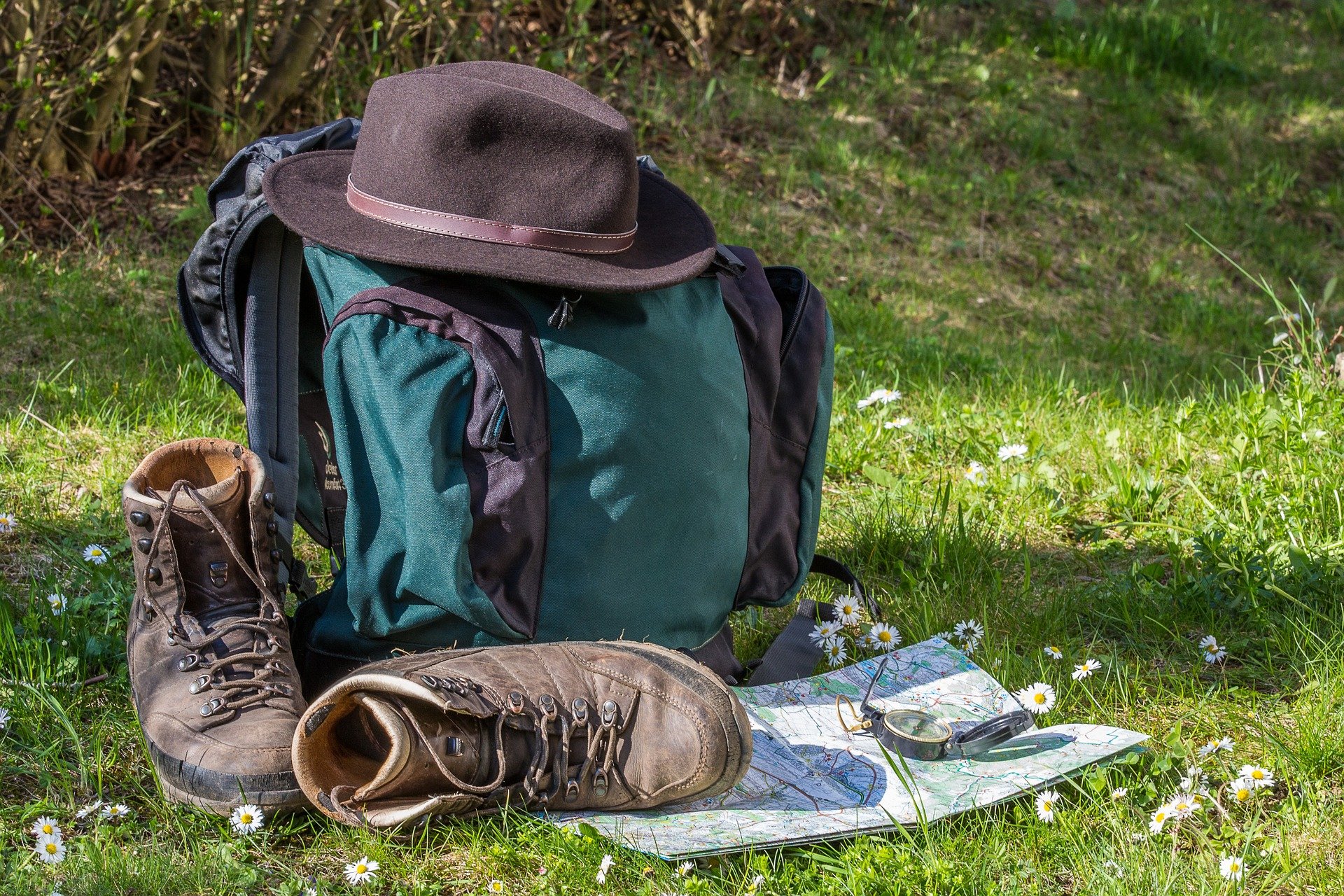The weight of your backpack will depend on a number of factors. As a general guideline, your backpack should never weigh more than 20% of your body weight. If you’re going for a day hike (not spending the night in the wilderness), your pack shouldn’t be more than 10% of your body weight.
In this article, we’ll cover how to determine the weight of your pack and reduce the weight if needed.
Table of Contents
Things to Consider Before Packing Your Backpack for a Hike

1. How Long Will you be Gone
Will you need gear for camping overnight, or just for the day? How many meals will you need on the trail? How much water will you need to stay properly hydrated?
2. Check the Weather Forecast Before you Pack
If there’s any chance of getting caught out in the cold, pack sufficient clothes to keep you warm. If it’s going to be blazing hot, include a hat and a lightweight long-sleeve shirt. If there’s any chance of rain, include a large hooded poncho that will keep both you and your backpack dry.
3. Prepare for Emergencies
Even if you plan on returning home before dark, pack a lightweight flashlight or headlamp. There’s nothing worse than taking a wrong turn and getting stuck out in an unfamiliar area at night. You’ll want to bring a compass as well.
4. Bring a Small First Aid Kit
It should be in a lightweight, waterproof case. Include iodine, bandages, and moleskin for blisters. You’ll also want to include sunscreen and lip balm. If you plan on a fire, include a spray or ointment for burns.
5. Verify Access to Water or Bring Enough for the Hike
If water is plentiful where you’re going, you could bring a single water bottle and everything you’ll need to make wild water safe to drink. A small bottle of iodine or a good filtration system are much lighter than bottles of water! If you’re uncertain of water sources, be sure to pack in enough to stay well hydrated.
Lastly, confer with your hiking companions. There’s no need to bring multiple camp stoves, emergency first aid kits, or water filtration systems. Get organized and share the load.
How to Best Weigh Your Backpack Before You Leave
The easiest way to weigh your backpack is to use a bathroom scale. Step on it with and without your pack; the difference is the weight of your backpack.
Another way to weigh your backpack is with a hanging scale. These scales allow you to hang your backpack from a hook and see exactly how much the loaded pack weighs.
You might also consider weighing your empty backpack and then weighing each individual item. This will give you a clear picture of how much each item is contributing to the total weight of your pack, allowing you to make an informed decision about which items might be better left behind.
How to Reduce Your Backpack’s Weight if Needed
If your backpack is too heavy, begin by completely unpacking it and laying everything out. Consider whether or not each item truly needs to be important.
Choosing the most lightweight items possible goes a long way towards lightening your load.
Boots are often overlooked, but many hikers tie their boots to their packs when crossing streams. Choose the lightest boots possible to avoid adding unnecessary weight to your backpack when you switch to water shoes or sandals.
Weigh each item you want to include, and compare it to lightweight versions online to see if a new product may be worth the purchase price. When you replace things, choose the lightest gear possible.
Packing an extra jacket is always wise; you don’t want to be caught out in the cold. But you don’t want to include a heavy, bulky coat either! These lightweight jackets will keep you warm without adding to the weight of your backpack.
The Best Day Hike Backpack Size
When choosing a daypack, look for a lightweight backpack with a capacity between 20 and 40 liters. Under 30 liters is fine for most day hikes.
Consider the weight of your pack as well. Some stylish backpacks — like leather backpacks or laptop backpacks — may weigh several pounds, adding needless weight to your burden. The best daypacks weigh almost nothing — literally less than one pound!
Many daypacks have hydration reservoirs, which allow you to fill a silicon bag with water. This is much lighter and less awkward than carrying multiple water bottles. Most even have an over-the-shoulder straw to allow you to drink water on the go.
What Food to Bring
First off, eating before you begin your hike will reduce the weight that you need to carry. Be sure to eat a hearty meal and drink plenty of water before setting off.
If you’ll be gone for several days, dehydrated food is a fantastic way to reduce the weight of your backpack. Make a meal plan to ensure that you’re bringing enough calories to fuel you through days of hiking. Don’t forget to factor in the water required to rehydrate these foods.
If you’re just going for a day hike, consider pre-packaged snacks for food on the go.
Nutrient-dense food will give you plenty of nutrition without adding too much weight. Trail mix is a classic for a reason; choose one that’s made with real food, not filled with candy. Beef jerky, granola bars, and crackers are all popular choices.
It’s best to include some fresh foods as well. Apples, carrots, celery, cucumbers, and bell peppers are all easy to pack and travel well. Fresh produce is full of water, and eating hydrating food reduces the amount of water that you need to carry.
Final Thoughts
Your backpack should weigh as little as possible while still holding everything you’ll need. Twenty percent of your body weight is the maximum, and a daypack should weigh no more than 10% of your body weight.

